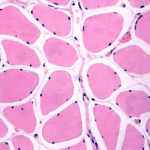It’s been about a month since I finished the first draft of my book, a project I’ve been working on since early 2016. It’s very long, about 180,000 words (which, if published now, would be over 600 pages) and far from publishable, but it is, at least, a completed draft. I wish I could say it feels “great” or feels like the weight of the world has been lifted from my shoulders, feelings I came to expect as I inched closer to this point. But strangely I feel anything but. I feel, instead, like I’m at mile 20 of a marathon. Anyone who has run a marathon knows that mile 20, while past the geometric half-way point of the race, represents about the experiential half-way point. Though only 6.2 miles remain, you tend to expend as much energy, both physical and emotional, in that remaining 6.2 miles as you did in the first 20.
When I was marathon swimming, I always kept this in mind during my training. If I was training for a 20-mile swim, I knew I needed to train to get to about 16 miles with relative ease, to stack the odds in my favor for a successful swim. I have many stories of how that insight proved valuable on game day as the suffering of the last few miles grew logarithmically from what preceded it.
But unlike running, swimming, or cycling—all things I’ve done and pushed through—I find myself in a different situation with the book, and I’m a bit ashamed to admit it, which is exactly why I forced myself to sit down and write about it this week.
I feel like quitting. I feel like handing the publisher back their advance and scrapping the whole project, never letting anyone see a word of it. I don’t want to push any more. If this were a marathon, I’d stop at the next water station and catch a ride back to the starting line. Such feelings are really unusual for me. In fact, I’m not sure I can think of a time in my life when I’ve felt this way. I’m pretty good at pushing through pain and muscling through struggle.
After brooding over my feelings for a few weeks I’ve started talking about them with a few close friends and I’ve come to realize what may be going on. A big part of what triggered this response is actually fear. Fear that the book will not live up to the (probably impossible) standard I have set. Fear that by the time it’s published (target date is spring 2021), some things I wrote in 2019 will be incorrect. Fear that I will make a mistake—either incorrectly cite some research or incorrectly interpret it. Fear that I can’t update it every few months as my knowledge and experience grow. Fear that the trolls who have created a cottage industry of tearing down people they are jealous of will do to me what they have done to many others before me. Fear that I won’t be proud of it, or worse yet, that I’ll be ashamed of it.
I have never experienced such performance anxiety before. Ever. I’ve never stepped foot in the ocean to begin a long swim and worried I would not finish it. I’ve never stood at the starting line of a time-trial and assumed I would fail to approach a PR. I’ve never started a project and worried I would fail (though I did end up failing at many things, I never went in with the fear).
And yet here I stand, 9 rounds into a 12-round fight, so afraid of losing, that I’m looking for any excuse to throw in the towel.
I suppose on some level I’m writing this to hold myself accountable to you, a potential reader of this book.
At the risk of coming off as a total cheese ball three days after Thanksgiving, there’s a dichotomy in the way that I’m thinking about the book and the related fear. On the one hand, I do appreciate the value of both appropriate praise and criticism, but on the other hand, I am hardwired to detest praise and feel emotionally devastated by criticism. That’s a pretty sad combo that can make for a very miserable life, I realize.
While I’m feeling this way now, I have also been reflecting on all that I have to be thankful for. I’m thankful for you who read my thoughts and emails each week, who listen to the podcast, who call us out when we don’t produce things as good as we should and make mistakes (there are definitely a few podcasts where I believe I have failed as an interviewer, and let listeners down), and who always encourage me to keep going. When we started this weekly email and podcast, I didn’t think I would enjoy it as much as I do and I didn’t think it would grow and reach as many people as it has. I may not be able to respond to all the emails or messages on social media, but I do see the encouragement, and I’m thankful to each of you for your support as I look to enter this next grueling 6.2 miles. And ultimately, I hope we both enjoy the final version.
– Peter






Peter, I have listened to your podcasts and conversations. Man , you will deliver an amazing book if the same quality of your communication skills is in the prose! I am at mile 20 , cheering you on!!!
Me too Peter! I would say all your fears are normal, given today’s environment. You will push through. You are one of the smartest guys I know and am so glad I know about you and your work. You’ve taught me so much and I look forward to being your student forever!
You got this Peter
Really loving to hear you be so open and honest about the opening of your heart.
The path to enlightenment may be harder than your swim to Catalina.
The rewards are much greater on the path to SELF.
You are great, Peter, and the only possibly negative thing I can think about your book is that you’ve given us so much, already.
You will just be putting it into a concise distilled format with the book, which we can have as a reference, saving us the trouble of having to search the web for past podcasts, or was it a youtube video or what exactly was it where I heard him say – X?
And I know it’s folly to even suggest this, but for the first time I am doing a truly low carb way of eating (after mouthing off and lurking about it for a couple of years), and I do hope at some point in your book you talk about uniting the signs of eating low carb, including blood tests, with *the way the patient feels* in her or brain/physique/being – ie, the “symptoms,” if I can even put it like that. This is very important, I feel.
I would like to offer some constructive remarks. 600 pages? That is a textbook. You are striving for perfection which is laudable, but unachievable.
Eugene Braunwald, the most pre-eminant cardiogist of our age, long ago realized that any textbook will already be partially outdated by the time of its publishing. So he offered a CD disk companion. Today that would be a dedicated portal of some sort. He was our Chief of Medicine back in the day.
I would advise more diligent editing of your blogs and possible of your book. The limit on a TED talk is 18 minutes, For good reason. Make it short and sweet especially in a era of short attention span minds. Can I listen to a complete blog in the car on a “typical commute” whatever that is.
Maybe with just a few less personal references to dinners and “people I know.”
So strive to edit your blogs for no more than 50 minutes.
And your book should be no more than 250-300 pages max. A Very tightly edited volume of new, fresh and exciting ideas. Challenging the status qou and the dogmas of today’s algorithmic medicine.
We, your listeners, have deep admiration of your knowledge and how you make every aspect of living a healthy life, exciting. I look forward to every podcast, every AMA, and I know I will not be disappointed in your book. Your the reason I continue to learn about ways I can be healthy in my mind (meditation), sleep (aura ring), exercise, eating the most nutrient dense food possible, reversing my pre-diabetes, and for me the most important is learning about many subjects which you bring us every week. Thank you and your team. Bravo. Its excellent.
Heartfelt words! Only time will tell between now and then, so enjoy the process. I’m pretty much 100% sure we’ll all enjoy the book!
Peter, there is no one else out there who can do what you do, as those of us who follow your writings and podcasts know. You’ve already helped me and so many others, and we probably have already heard from you much of what you’re putting in the book. So I think this book is more for new people — and it will help them so much. I hope you are working with a great editor. If not, let some of us help you edit it.
I love the podcasts, your expertise and that of your guests, and the depth of detail in your discussions. I’m sure your book will be great and it is one of the books I’m most looking forward to reading in the coming year (I’d be good with the 600 pages just the way they are)! I feel the same way about the book I’m writing … just need to go the last 6 miles of that marathon (hope you have help … the polishing of drafts is where a lot of the magic happens. Just like managing your teams, you are a facilitator and there is lots of help out there to help you bring the book home if you are willing to get that help, manage it and work with them to finish up)
Dear Peter,
I am eagerly awaiting your book. You seem to one of very few people with the credentials, knowledge and hunger to provide correct and up to date information. Podcasts and emails are great, but a consolidated document in form of a book is what is very much needed. I wish you the best of luck in completing the last few miles. I know you can do it! Maybe a pre-order button would give you an additional boost? I for one would definitely click on it 😉
All the best!
“I am at mile 20 , cheering you on!!!” -Pawan Randev
So am I! I sometimes look at the reasons why you started the journey, you’ve already written so much! Lean on your support, find more, heck, I would be willing to help with a chapter, is there such a thing as a community edit?
“It is hard to fail, but it is worse never to have tried to succeed. Far and away the best prize that life has to offer is the chance to work hard at work worth doing.” -T.Roosevelt
#hatersgonnahate🤣
Peter, as a 46 year old who had my second heart attack six months ago and added stents 4&5 to my collection, I can’t tell you how important your work is to people like me, perfect or not. After my first heart attack six years ago I found only the internet and a few books by anti-establishment docs. As an engineer I’m chagrined to say I didn’t chase the data and allowed emotions to convince me that statins were evil. After the second heart attack I found your podcast and a calm rational approach to learning about my health. An approach that, instead of charging about alarming everyone, simply explains (not always simple concepts) what we know and what we don’t know today. As humans that is the best we can do, and it makes a mountain of difference to people like me, because without people like you, all I am left with is my own medically untrained mind to sift through mountains of research or the echo chamber of alarmists. Your work is that much more important because you acknowledge its imperfections and strive to constantly improve. At some point however, we need to get our hands on what you know today so our lives can be better and longer, even if what you know today isn’t perfect or changes between now and publish date. Please let go of the fear of imperfection, (one that I’m very familiar with) and press on for the people like me whose lives you impact for tremendous good even with an imperfect offering.
I’m sure you’ll send out copies of your draft to trusted friends to look for any major gaffs. If I were you I would set it aside for a month or two, then re-read as if it were someone else’s book and consider your friends’ comments. This look with a fresh brain is often helpful, IMO.
There are rapid evolutions going on in the science right now, but you are such a great critical thinker that I think you’ll guard against any too broad assessments and handle the qualifications appropriately. I doubt things are going to change much in the near future. Given that, why not share with people a collection of your current thinking? My 2¢, anyway. 🙂
Also, think very hard about whom you are addressing in your book. If this is for the general public, you may want to go into less minutiae or save it for the appendices. If this is a how-to book, top sellers seem to have lots of success stories and fuzz over some of the technical details. Think about what your goals are for the book.
Dear Peter, It is helpful to all to see that people who put themselves n the forefront of research are willing to take the social and public risks that you mention. I believe that the majority of your readers are like me; well -educated in science and research and eager to read updated and relevant commentary on the research fronts. I am a nurse coordinator in Alzheimer’s disease research but cannot spent the time to delve as deeply as you and your team on other issues. Your commentary is delightful and your work truly inspires people to make small changes to better the health of themselves and their families. We do not expect perfection, only honesty. Thanks for all that you do to coach, inform and inspire us all. As a person who works in front lines of research but does not get in the citations, I also deeply thank your team- as no one does this work alone.
I would like to read all 600 pages. How about making the “draft” available for purchase to members? I fear that the publishers will cut material that I (and others) would appreciate.
Reading your post, I see that it is hard to be you! I’d guess that must be some sort of genetic flaw. Remember, to many of us, you are a god! And, even if your book is not perfect, or even if it is bad, you will not lose our respect- you’ve already done so much to earn it.
Peter, how encouraging to read your public comments about personal struggles! If only we all had that kind of courage; I personally am inspired and am giving you my personal spur to the hindquarters– get it done and focus on all the good it will do–all the presents we can give to others that want information in that medium. In your heart you know nothing is ever perfect, this will just drive people to want even more from you as you evolve and educate as time provides new insights!
Your sincerity, openness/vulnerability and integrity as a human being, even more than your in depth knowledge as a doctor is what attracted me to your work. The book may not be the perfectly up to date book because that’s almost impossible in this age of information overflow, but it WILL be a success for those of us who want to see how one of the admirable analytical mind swim in the ocean of health research and what tools he uses to arrive at the conclusions. As for criticism, you can’t please every one, and perhaps you wouldn’t want to any way. The world is a better place because of authentic people like you!
Oh! You are so not getting away with being afraid. You swam with the business-end of your anatomy in shark infested waters. You probably had a dozen of those things trailing you. If you were my husband, I’d have beaned you with a rolling pin long before you hit the beach. Your wife is a saint. I am reading David Sinclair’s book and he thinks that if humans had more time (i.e. longevity) on this planet, they’d be nicer to one another… WTF!!! So, like, if someone as smart as David Sinclair can say bozo stuff like that, so can you. It’s a free country. His book is great, by the way, I am not knocking Mr. Sinclair.
Writer to writer, you’ve done the hard part. You’ve written just about everything you wanted to write. You’ve laid down the bones. In my opinion, the best part of writing is the cutting and editing. It is so much fun and so satisfying, you don’t even need to put your big-boy pants on to do it. You just need time, and for that I refer you to David Sinclair…KIDDING!
Have fun. You deserve it!
Dear Dr. Attia,
Yesterday’s email rang true, loud and clear. I am a 75-year-old violinist who for most of my career as performer, teacher, and colleague, have been plagued with the problem of stage fright.
Wrestling with this problem has sent me on a quest for solutions via psychotherapy, Zen Buddhism, and by any other means that would give me an insight as to how to cope.
Mind you, I have utmost respect for people who are better at what they do than anyone else, be it sports, medicine, or whatever one cares to name. Strangely enough, I would like to lay a claim that musicians have a deeper-rooted case of stage fright and I will tell you why.
As an amateur, the intrepid writer George Plimpton “entered the coliseum of professional sports,” an experience he discussed in his book, Paper Lion. Among his other feats, Mr. Plimpton helped start the literary quarterly the Paris Review and served as its only editor. While running in front of the bulls in Pamplona, Spain, with Sadruddin Aga Kahn (son of Prince Aga Kahn), Plimpton persuaded Kahn to become publisher of the financially shaky enterprise.
Ever undeterred, Mr. Plimpton had his nose bloodied by light-heavyweight boxer Archie Moore, cut his hand when he played goalie with the Boston Bruins, clung to a trapeze with the Flying Apollos and pitched to baseball great Willie Mays. But the encounter that most frightened the “participatory journalist” was playing the triangle in the New York Philharmonic under conductor Leonard Bernstein. Per Plimpton, “In a football game or baseball game, mistakes are part of what happens.”
I heard Mr. Plimpton explain why he was so terrified playing in the New York Philharmonic. The reason was that when you make a mistake during a performance of a masterpiece, you desecrate a work of art, very often an icon of our Western civilization. That is also the reason why some luminaries of classical music were known to call off their performances because, once in a great while, legends like Vladimir Horowitz and Martha Argerich could foresee what was actually possible on a given day. Then there are examples of violinists who not only have to climb the Olympus but very often they have in their hands an instrument—yes, a violin—worth $15 million. I’m not kidding. There are violins being used that are worth anywhere between $15-20 million, an added responsibility that makes one shudder.
During my long career I have encountered some people who found a way of effectively dealing with these fears. It boils down to a common denominator, namely, they deeply enjoy the underlying act of “doing it.” The two best examples that come to mind are the composer Igor Stravinsky who said, “I like composing better than I like music,” and a similar quote from famed violinist Nathan Milstein who said, “I like playing the violin more than I like music.” Both men had very long careers; I believe Milstein set a record of performing well into his eighties, an absolute rarity considering the finely-honed movements necessary to play that instrument at such an old age.
Finally, I liked your candor and maybe my advice might be of help. I’ve been following your transformations for quite a while and I have nothing but the greatest respect for what you’re trying to do.
Michel Samson
I can’t wait to read it.
Thank you for your honesty within this raw post!